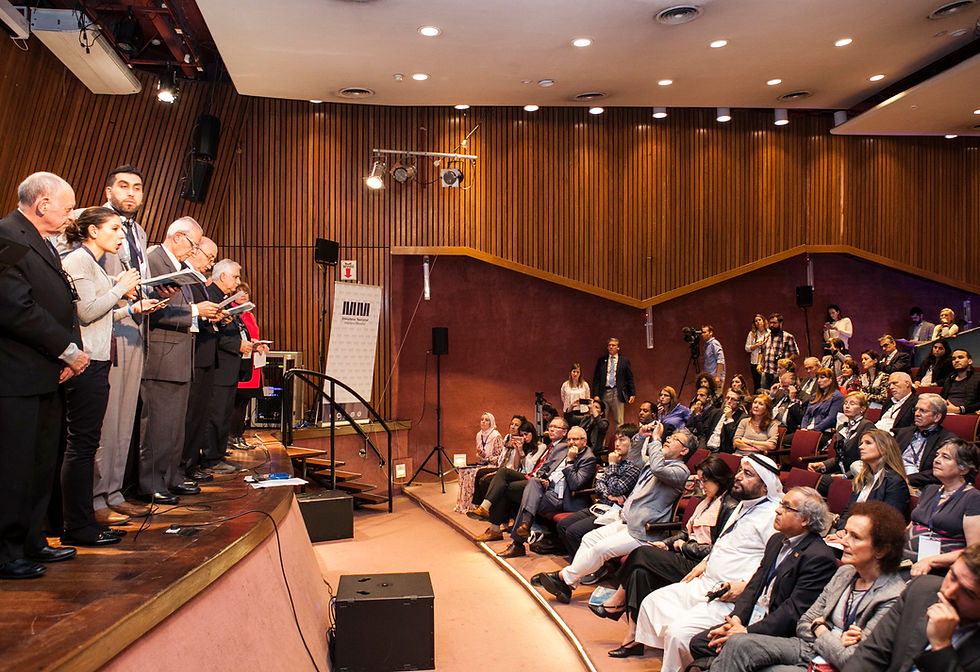Interfaith Dialogue - Baha'i World News Service
- Australian Bahá’í Community
- Nov 22, 2018
- 2 min read
Updated: Jan 17, 2020

Today, the interfaith movement can reflect on more than a century of experience cultivating dialogue between people of different faiths. At the end of the 19th century, the burgeoning movement seemed to hold great promise for ushering in a recognition of the oneness of religion. The 20th century painted a very different picture. Two world wars, a seemingly intractable rise of sectarian violence, religious fundamentalism, and radicalisation have left many disenchanted with religion and wary of the value of the movement.
The interfaith movement, however, has made impressive contributions toward promoting unity among the world’s religious communities. Increasingly, people are conscious of how the movement can go even further in helping humanity to attain higher degrees of unity in addressing its most weighty challenges.
For Baha’is, a century of participation in interfaith activities worldwide has sparked a deep reflection in recent years. What is the potential of the spaces opened up in the name of interfaith dialogue? What are its aims and hopes today? How can we participate in a discourse that draws on the insights of religion but goes further to explore their relevance to a world in disarray?
“One way of looking at religion is as a phenomenon that transcends any one faith or sect,” explains Venus Khalessi, who represented the Baha’i community at the G20 Interfaith Forum in Buenos Aires, Argentina, last September. One of the aims of participation in interfaith dialogue, she explains, is to draw out universal principles and learn from each other’s experiences applying them. The point is to work toward a more peaceful and just world. “In this sense, religion can be seen as a system of knowledge and practice that is evolving and offers insights and values that can help society advance.”
The view that religion has a vital and constructive role to play in the life of humanity was shared by representatives of many religious groups at the G20 Forum. The conference’s concept paper describes religion’s prominent role in many societal issues.
“Acknowledged or unacknowledged, around the world religion addresses the challenging problems societies and nations face as well as broader societal well-being,” the paper states. “Without the investment of time and resources that religiously-motivated organizations and individuals provide, the United Nations’ SDG (Sustainable Development Goals) are unattainable.”
Read the full article at Baha'i World News Service news.bahai.org/story/1306





Comments